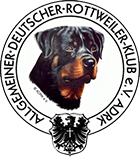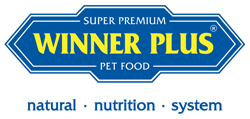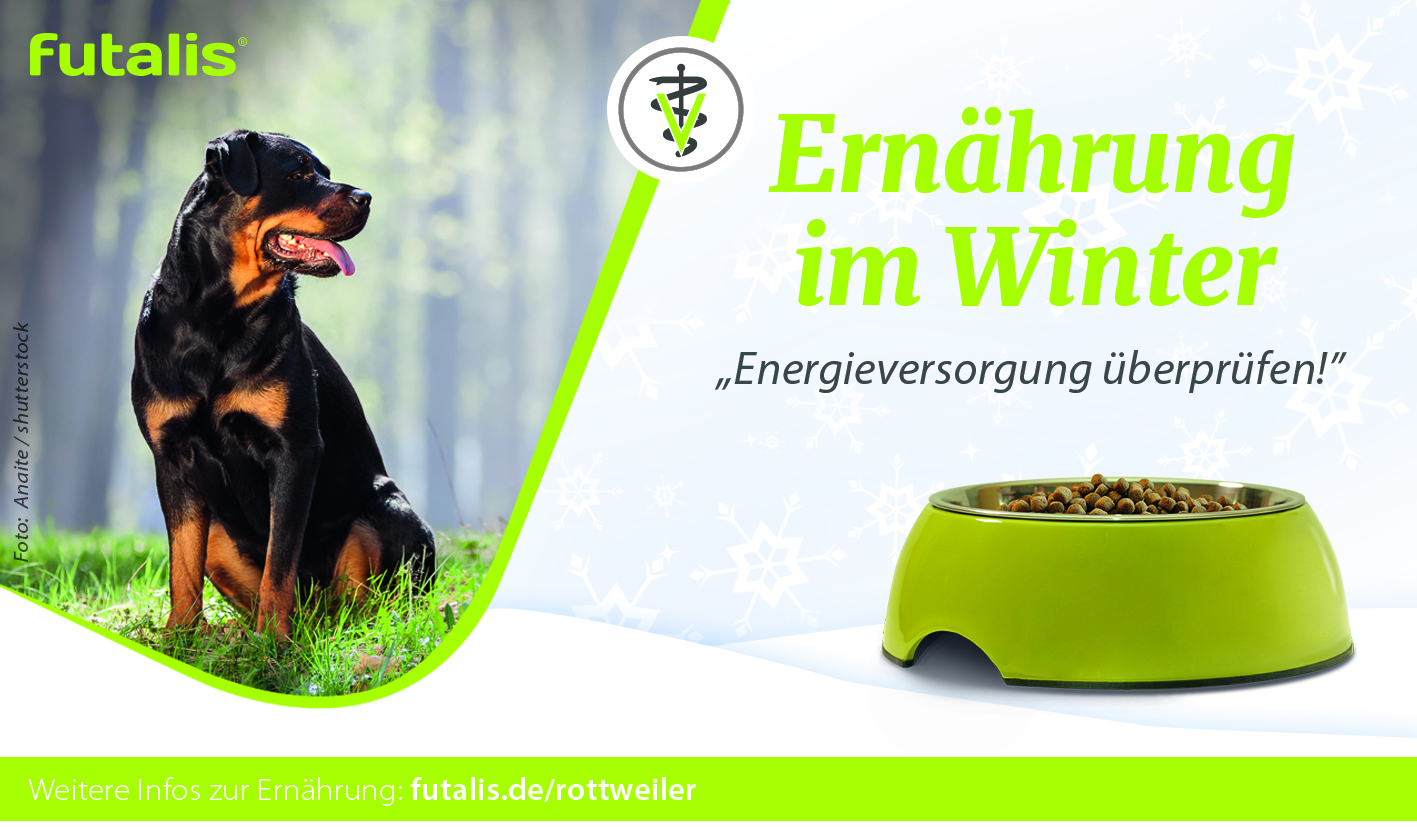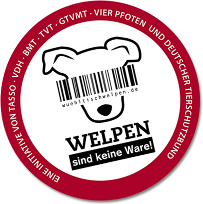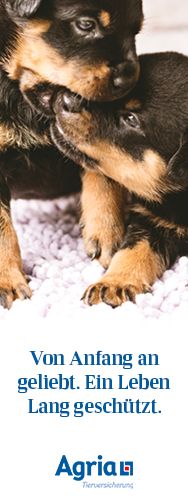| ADRK |
| Allgemeiner Deutscher Rottweiler-Klub e.V. |
Increased energy demand in winter
The cold season represents a special challenge for dog and owner. In order to get through the winter in a healthy way, you have to pay attention to a few things. The right nutrition can contribute to keeping the dog healthy. For some dogs it is even advisable to adjust the food ration in winter.
Preventing cold symptoms
In icy temperatures, cold winds and deep snow small breeds, seniors or puppies as well as short-haired dogs without undercoat freeze especially fast. Especially in winter you should pay attention to enough exercise. When jogging or cycling, for example, not only the dog but also its owner gets warm. Otherwise, a brisk walk without longer breaks is recommended. Sitting or lying outside for long periods of time should be avoided in winter, otherwise dogs will quickly cool down, which can lead to cystitis or a cold.
Checking and adjusting the power supply
Many dogs have an increased energy requirement in winter, especially if they are often outside or outside. This depends on the animal's age, activity and coat density. Outdoor dogs need 10 to 90 % more calories than in optimal weather conditions in the so-called thermoneutral range. Depending on coat density and skin insulation, the ambient temperature at which heat loss is lowest is between 15 and 20 degrees for long-haired breeds and between 20 and 25 degrees for short-haired breeds. At sub-zero temperatures a dog consumes more calories by maintaining body temperature than on a mild summer day. Whether the individual dog needs more energy can be determined from its nutritional status. If the previously normal weight animal loses body weight, its daily ration should be adjusted.
However, there are also dogs that go out less in winter and spend more time in the warm room. These dogs need less energy in winter than in summer when they are outdoors for long periods.
A diet that meets their needs
In order to strengthen the dog's immune system, care should be taken in winter to ensure that vitamins, minerals and trace elements are supplied as needed. In this respect, it is not always sufficient to simply adjust the amount of food, but the nutrient supply should also be checked and a suitable food selected for the current requirement. By an optimal nutrient supply the dog remains fit and healthy also in the winter.
Avoid harmful food in winter
Less beneficial to the health of the dog is eating snow. It could contain pathogens, pollutants or road salt, which can lead to vomiting, diarrhoea and, in the worst case, gastro-intestinal inflammation. Instead of snowballs it is better to throw sticks or toy balls.
During the Christmas season, certain treats intended for humans should not be fed to the dog. Chocolate, raisins, grapes and macadamia nuts should be avoided as well as onions, garlic and avocado. Depending on the size of the dog, even small quantities can lead to poisoning symptoms.
Further tips to get through the winter in a healthy way
Frequent bathing should be avoided if possible in order not to destroy the body's own fat layer of the skin, which protects the dog from cold and wetness. In winter the roads and paths are often prepared with road salt or chippings. Sensitive dog paws should therefore be creamed with milking grease before a walk and then rinsed off with lukewarm water. These measures avoid the tearing of the paws and protect the dog from burning pains, which would cause salt and chippings in cracked skin.
For small or less hairy dogs, for sensitive social dogs, for dogs with organ diseases and for puppies several short walks are better suited than an extended gas round. In order to prevent a cold or even cystitis, it may make sense for these dogs to wear a jacket. At the latest when the dog begins to tremble, it is high time to start the way home. At home you should dry your dog thoroughly, remove lumps of ice from the coat and often brush to remove dead hair. New coat will grow back faster and the air will circulate better, which is important for the heat regulation of the dog's coat.
If you take all this into consideration, you should get through the winter well and enjoy the beautiful sides of the cold season together with your dog.
